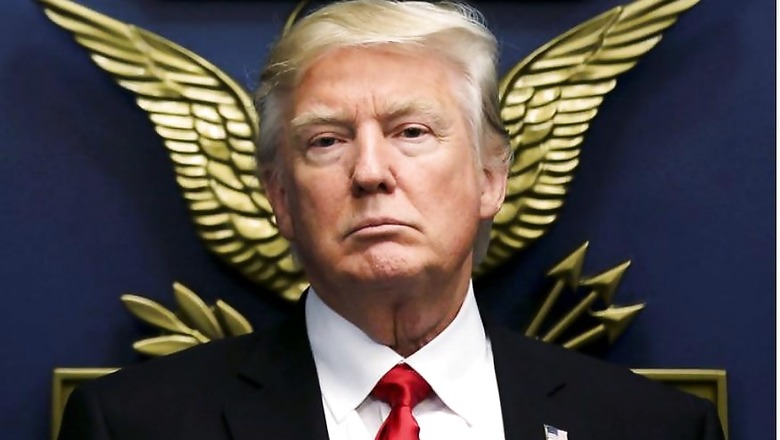
views
NEW YORK: The U.S. government took the legal battle over President Donald Trump's travel ban to a higher court on Friday, saying it would appeal a federal judge's decision that struck down parts of the ban on the day it was set to go into effect.
The Department of Justice said in a court filing it would appeal a ruling by U.S. District Judge Theodore Chuang in Maryland to the 4th U.S. Circuit Court of Appeals in Richmond, Virginia.
Chuang on Thursday issued an emergency halt to the portion of Trump's March 6 executive order temporarily banning the entry of travellers from six Muslim-majority countries. He left in place the section of the order that barred the entry of refugees to the United States for four months.
Another federal judge in Hawaii struck down both sections of the ban in a broader court ruling that prevented Trump's order from moving forward.
In Washington state, where the ban is also being challenged, U.S. District Court Judge James Robart put a stay on proceedings for as long as the Hawaii court's nationwide temporary restraining order remains in place, to "conserve resources" and to avoid duplicative rulings.
The decisions came in response to lawsuits brought by states' attorneys general in Hawaii and refugee resettlement agencies in Maryland who were represented by the American Civil Liberties Union and the National Immigration Law Center. Detractors argue the ban discriminated against Muslims in violation of the U.S. Constitution's guarantee of religious freedom. Trump says the measure is necessary for national security to protect the country from terrorist attacks.
White House Press Secretary Sean Spicer said at a press briefing the government would "vigorously defend this executive order" and appeal the "flawed rulings."
He said the plan was to appeal at the 4th Circuit first and then seek clarification of Hawaii's ruling before appealing to the 9th Circuit U.S. Court of Appeals in San Francisco.
The 9th Circuit court last month upheld a decision by Judge Robart that halted an original, more sweeping travel ban signed by the President on Jan. 27 in response to a lawsuit filed by Washington State.
The new executive order was reissued with the intention of overcoming the legal concerns.
Trump has vowed to take the fight all the way to U.S. Supreme Court.
The 4th Circuit is known as a more conservative court compared to the 9th Circuit, said Buzz Frahn, an attorney at Simpson Thacher & Bartlett who has been tracking the litigation nationwide.
"The Government is probably thinking that the 4th Circuit ... would lend a friendlier ear to its arguments," he said.
Judges have said they are willing to look behind the text of the order, which does not mention Islam, to probe the motivation for enacting the ban, said Frahn. Trump during the campaign promised to ban Muslims from entering the United States.
The U.S. Supreme Court is currently split 4-4 between liberals and conservatives with Trump's pick for the high court - appeals court judge Neil Gorsuch - still awaiting confirmation.
Hans von Spakovsky, from the Washington D.C.-based Heritage Foundation said that the Department of Justice might want to time their appeals to reach the Supreme Court after Gorsuch is confirmed. He said the court would be likely to hear the case. "They will take it because of its national importance," he said.














Comments
0 comment